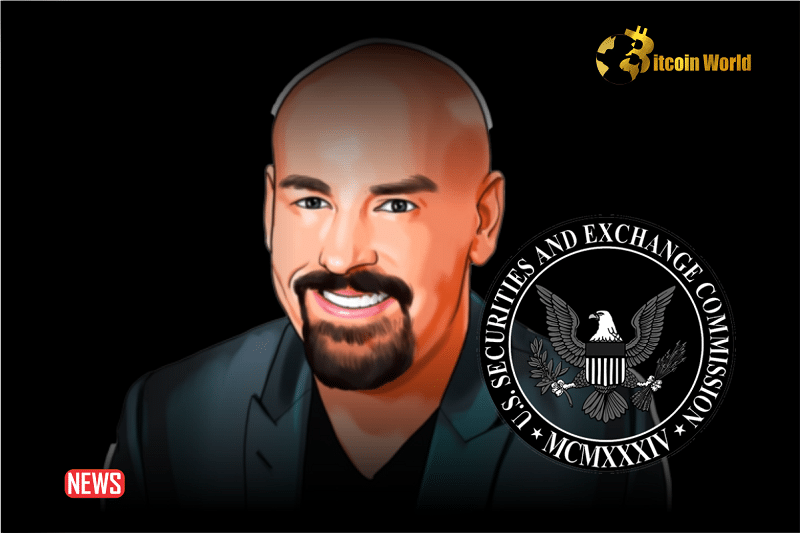The debate over whether digital assets should be classified as securities continues to rage, with significant implications for the future of cryptocurrency regulation. Attorney John Deaton has reignited the discussion by revisiting his stance on why digital assets, particularly secondary sales, should not be considered securities. This comes amidst Cardano founder Charles Hoskinson’s vocal criticism of the SEC’s approach to investment contract rules. Let’s delve into the arguments and explore the complexities of this critical issue.
Deaton’s Defense: Why Digital Assets Aren’t Securities
John Deaton, known for his strong opinions on crypto regulation, recently shared a thread on X, doubling down on his argument that digital assets themselves are not securities. His reasoning centers around a few key points:
- The Securities Act of 1933: Deaton points out that the Act does not list digital assets or software codes as securities.
- Court Precedents: He cites cases like Ripple’s partial victory and the SEC’s lawsuit against Telegram, where courts have ruled that digital assets, in certain contexts, do not qualify as securities. The core issue, according to Deaton, is the interpretation of “investment contract.”
- Secondary Sales: Deaton argues that even if the initial coin offering (ICO) of a digital asset could be considered a security, subsequent sales on the secondary market should not be. He references the Supreme Court’s Howey case, which established that the sale of an asset without the involvement or knowledge of the original issuing company cannot be classified as a security.
In a recent post on X, John Deaton revisited an old post of his on why digital assets cannot be regarded as securities.
Hoskinson’s Frustration and the SEC’s Stance
Deaton’s renewed argument comes in response to Cardano’s Charles Hoskinson’s frustration with the SEC’s application of the investment contract theory. Hoskinson believes the SEC is overreaching in its regulatory grasp, stifling innovation in the crypto space.
The SEC’s position, however, is that many digital assets are indeed securities, particularly when they are offered as investments with the expectation of profit based on the efforts of others. This interpretation stems from the Howey Test, which the SEC uses to determine whether a transaction qualifies as an investment contract.
The Core of the Debate: Investment Contract Theory
Deaton highlights that the term “investment contract” is often misunderstood. He refers to his thread posted in April.
The debate hinges on whether the purchase of a digital asset constitutes an investment in a common enterprise, with the expectation of profits derived from the efforts of others. The SEC argues that many ICOs and other digital asset offerings meet this definition, making them subject to securities laws.
Deaton counters that secondary sales, where the original issuer has no involvement, do not meet this definition. He emphasizes that simply expecting the value of an asset to increase does not automatically make it a security.
Read Also: UK Chancellor Proposes A Legislative Proposal For A Digital Securities Sandbox (DSS)
Bitcoin’s Unique Position
Deaton offers an interesting perspective on Bitcoin’s early days:
“Every Altcoin arguably starts out as a security when it’s first distributed, ICO or not. When Satoshi was the only miner of #Bitcoin (or one of a few) and had he offered 100K #BTC for sale for $100K USD, it would have been an unregistered securities offering.”
This highlights the evolving nature of digital assets and the challenges of applying traditional securities laws to them.
The Need for Clarity
Both Deaton and Hoskinson agree on one crucial point: the need for greater clarity and coherence in the application of U.S. securities laws to digital assets. The current ambiguity creates uncertainty for businesses and investors, potentially stifling innovation and driving companies to operate outside the U.S.
Conclusion: A Call for Sensible Regulation
The debate surrounding the classification of digital assets as securities is far from over. John Deaton’s arguments, coupled with Charles Hoskinson’s frustrations, underscore the urgent need for a more nuanced and sensible regulatory framework. A framework that protects investors without stifling innovation is paramount for the long-term success of the cryptocurrency industry. As the SEC continues to grapple with these issues, the crypto community must actively engage in the conversation to ensure that regulations are fair, clear, and conducive to growth.
Disclaimer: The information provided is not trading advice, Bitcoinworld.co.in holds no liability for any investments made based on the information provided on this page. We strongly recommend independent research and/or consultation with a qualified professional before making any investment decisions.


